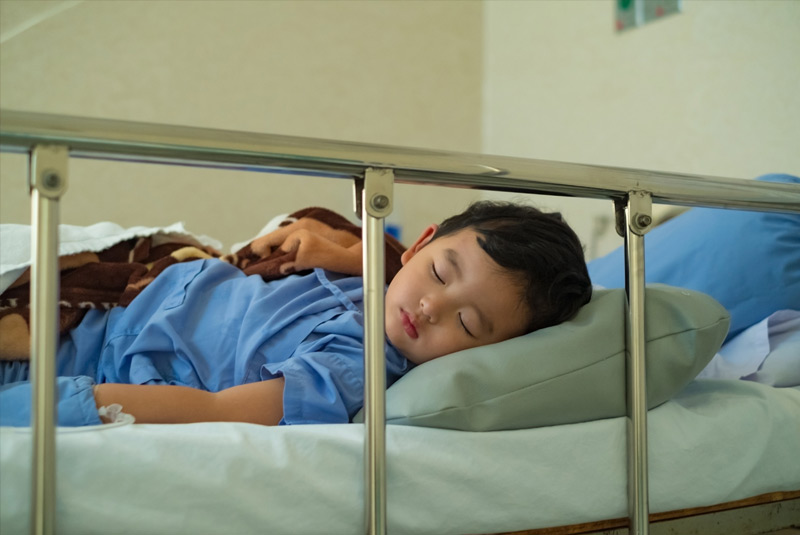

You are now leaving GSK’s website and are going to a website that is not operated/controlled by GSK. Though we feel it could be useful to you,we are not responsible for the content/service or availability of linked sites. You are therefore mindful of these risks and have decided to go ahead.
Agree Agree Agree Stay
As the ongoing pandemic progresses, the role of vaccination has become more crucial than ever. It strengthens your immune system and provides protection against life-threatening diseases by using your own body's natural defenses to build immunity.1
Much like Pneumococcal pneumonia, many other diseases spread by viruses and bacteria are vaccine preventable.2 One such disease is Meningococcal meningitis. Meningococcal meningitis is associated a high fatality rate.3
Meningococcal Meningitis predominantly affects small children and can cause severe brain damage if left untreated.3 Here’s everything you need to know about this disease and how you can help shield yourself against it.
Meningitis is a serious infection that affects the protective layer around the brain and spinal cord. It can be caused by bacteria, viruses, and fungi. Meningococcal meningitis is caused by the Neisseria meningitidis bacteria, which holds the potential to cause large epidemics. It can be transmitted from person-to-person through respiratory droplets.3
Patients are known to have rapidly progressed to death, often within 24 to 48 hours after the onset of symptoms. Even among those who survive, 1 in 5 may experience lifelong complications such as hearing loss, brain damage, mental disabilities or loss of limbs.3
Although meningococcal disease can infect anyone of any age, it has often been observed in children under five years of age, immunocompromised individuals, adolescents, and young adults.3
There have been major improvements in prevention of the disease. One such measure is preventive vaccination and can save lives and reduce complications. In addition, good hygiene & social distancing of kids from infected individuals is also essential for prevention.3 Here are some of the most common queries about Meningococcal disease, symptoms you need to look out for and how it can be treated.
From coughing and sneezing to sharing food and drinks and living in close quarters, these everyday behaviors can lead to contracting meningococcal meningitis. The bacteria live in the nose and throat and is spread from one person to another by close contact.3
When it comes to symptoms, meningitis can present as common cold and flu that quickly progresses to high fever or chills, confusion, cold hands and feet, severe aches or pain in the muscles, dark purple rashes, sensitivity to light and neck stiffness.4
An effective way to protect your child against meningococcal disease is vaccination.3
There are different types of vaccines for different types of meningococcal disease. Meningococcal ACWY Vaccine, the one available in India, helps protect against four major types of meningococcal disease.5
Meningococcal disease is serious and poses numerous risks, but with timely vaccination in children, it is possible to protect them.3 If your child has not been vaccinated previously, consult your doctor now for more information. Together, we can fight and win the war against meningitis.
References:
